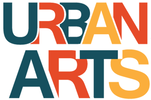Introducing Illinois Legislative Black Caucus Foundation Executive Director Tiffany D. Hightower8/21/2020  How have the Arts impacted your life? I am so thrilled that you asked this question, the arts have impacted my life since I was very young. I started writing around the age of 12. I am a poet, a poet who has been working on my first poetry book for a while now, it will be completed but as an artist I think you look for a level of perfection and can be quite protective of your work. However, when I first discovered that I could write that is the moment I first discovered my voice. I could write in rhythms the things that were happening around me that I could not speak of....but then I started performing my work and that would provide me such a cathartic release. And music how do you not love the artistry of that-between Prince and India Arie I attempted to teach myself how to play guitar, I learned how to read music during my childhood as well through short-lived piano lessons. A skill I still have the reading music not the piano playing. So without the arts, there literally would not be a Tiffany D. Hightower writing got me through some trying adolescent years-so the arts are rooted in my core. How do you incorporate the Arts in your career? Well with writing and performing, I became a very proficient orator, understanding the cadence of words. This also helped me become a speech writer, a crafter of resolutions, and so much more. There is not at time when I do not use the arts in my career, writing and delivering speeches is an art form all on its own. When working as a political strategist and designing speeches, my love of poetry allowed me to be able understand the flow of words which allows for a stronger impact to be made when addressing audiences. Tell us about your organization and your responsibilities.
I am the new Executive Director for the Illinois Legislative Black Caucus Foundation. The Foundation was established in 2002 and has given away close to $750,000.00 in scholarships to matriculating higher education students since inception. The organization is the civic and philanthropic arm of the ILBC which was established in 1967, the ILBC is older than the CBC. I oversee the day to day operations of this organization. The mission of the ILBCF is to provide a forum for non-partisan educational research, public policy development, and analysis of various issues of social and economic importance for Illinois African-American communities, and to provide students throughout Illinois with scholarships and internship opportunities to advance their educational goals. Also, I interface with the ILBC members and the foundation board on a consistent basis to ensure that the future promulgation of the organization is embedded in synergy of goals and objectives. In tandem, there is also quite a bit of fundraising involved to ensure that we can be successful in our aforementioned mission. What is your main goal in this new role and why? During an extremely critical time in the history of America, my main goal in this new role is the VIP Plan-Visibility, Infrastructure, and Programmatic Pipeline. In this season it is imperative that all of our long lasting African American Institution serve a beacon and resource for the constituencies that we are committed to, since its establishment the ILBCF has been committed to providing impactful outcomes to African Americans whether it be through our scholarship program, interns, or research. It is even more important now to amplify our resolve in these areas and the VIP Plan is a start to getting us there. Also with approximately just a little over 20 Black Caucus Foundations in the United States it is important that from the vantage point of the ILBCF that we increase our visibility, fortify our infrastructure, and strengthen our programmatic pipeline. This will allow us to come in alignment with the communities we serve in an extremely strategic and sustainable way. How are you managing life with COVID-19? The COVID-19 Pandemic hit right after our 1st Fundraising event of the year, the ILBCF Black History Month Soiree in Springfield and it changed everything. We had a Black Agenda Roundtable planned that we immediately had to cancel. With that we had to shift gears and alter programming and look at things from a world where social distancing was the new norm. So the ILBCF did a few things, we entered a partnership with the Urban Leagues Affiliates of Illinois to look a post economic recovery plan for African Americans throughout the state of Illinois, we organized a statewide giveaway of close to 20,000 pieces of PPE to African American communities during Juneteenth, and then we began raising money for the education gap/digital divide to support our children who were being impacted by the gaps that remote learning further exposed. The gap exposed the need for equitable access; a need for technology, education, and tutoring support for families to ensure that the digital divide and the educational gap is not widened any further in the midst of this public health crisis. Current statistics regarding the digital divide indicates that 14.3 % of school age children from 3-18 without technology access, when accounting for race: 19.2% of those students are African American. Per a 2020 article in Governing regarding the impacts of the Coronanvirus, “There still exists a stubborn digital divide that disproportionately impacts Americans from underserved communities. One in three African Americans — 14 million — still don't have access to computer technology in their homes.” And per the Illinois State Board of Education, currently 34% of the students serviced in the state are not connected to their online coursework during this pandemic based on access to technology. Based on our knowledge of the disproportionate impact that COVID-19 is having on the African American community, deductive reasoning can lead us to the hypothesis that African American students are being impacted at horrifying rate where it pertains to the education gap as well. Students have now been placed in home where not only obtaining regular meals is a concern-but being able to maintain consistency with their online coursework is a problem as they do not have the technology to ensure that they can even access their classes. According to a ProPublica report in 2018 African American Students are on average, academically 3 (three) grades behind their Caucasian Counterparts. This is also exacerbated by inequities in school districts based on gentrification and other mitigating factors which have resulted in lower income districts not being resourced in a way that has ensured that all children receive equal materials to promote optimal success. ILBCF believes that without immediate access to resources this educational gap will widen and the recovery post COVID will gravely impact students of color. Also, with schools and daycares closing-families; especially the parents/grandparents of essential workers have had to step up and not only look after the children but also become the primary educator. Understanding that these divides existed prior to COVID-19, ILBCF is clear that these areas of support will be critical for the families of essential workers and it will provide one less point of anxiety for these individuals while they strive to keep the rest of Illinois safe via the provision of vital services.' We are currently still raising money for this project to ensure that we can support some Afrcian American Students with the technology, connectivity, and support services that are needed to be successful. You are very pro-active. How are you dealing with the racism and violence that is at an all time high? What has been happening since late May of 2020 is sobering, but not surprising. African Americans have been saying names of our lost loves ones for decades. But what It was, is the re-emergence and amplification of the shade of one's skin being indicative of the value of life. Struggles and fights that a population of people felt tremendous gains had been won in felt eradicated with 8 minutes and 46 seconds. Nina Simone once stated; "The worst thing about that kind of prejudice...is that while you feel hurt and angry and all the rest of it, it feeds you self-doubt. You start thinking, perhaps I am not good enough." That feeling can be so overwhelming and enraging, it makes you take to the streets to demand your worth by lifting your voices and saying no more. You ask 'how are you dealing', I am not dealing! I am looking at ways to organize, to advocate, to break the cycles of systemic racism and implicit bias so this will no longer be the story in America where it pertains to African American people. We are good enough, no great enough to be more than simply matter and that is what I am fighting for.....progress with no expiration date. How do we get more African Americans to get involved with the political process? I think this is a great question and I actually believe that we are seeing it now, African Americans are running for office, they are organizing, they are asking questions, and they are demanding justice. I think we should encourge more african americans to enter the judical system to engage in running for offices that are on the down ballot as well. The how is in-speaking to not just the necessity for change but the ratification of it. It is letting African Americans know thta our collective voices in the political process standing on 1 accord will yield the outcomes we desire but we have to stay together. There is an African proverb, that states: "Sticks in a Bundle, are UNBREAKABLE." We must remind ourselves to be those sticks, it is the wisdom of the whole-we all are a part of this journey. Finally, we get more African Americans engaged in the process by not being afraid to mentor to share our wins and our losses in this arena, and we must engage in succession planning to build up the next generation of African American Leaders so they know and are inspired to build on the legacy that has been created. About The Illinois Legislative Black Caucus Foundation The Illinois Legislative Black Caucus Foundation (ILBCF) is a 501(c)3 organization that was established in 2002 as the civic and philanthropic arm of the Illinois Legislative Black Caucus (ILBC). The ILBC was created in 1967 and is the oldest Black Caucus in America. The mission of the ILBCF is to provide a forum for non-partisan educational research, public policy development, and analysis of various issues of social and economic importance for Illinois African-American communities, and to provide students throughout Illinois with scholarships and internship opportunities to advance their educational goals. Since inception the ILBCF has given out $750,000.00 in scholarships to students throughout the state of Illinois during Juneteenth this year we donated approximately 20,000 pieces of PPE to marginalized communities throughout the state as well. To learn more about the ILBCF and ways to support our efforts, contact [email protected] Facebook-Illinois Legislative Black Caucus Foundation Instagram-Illinois Legislative Black Caucus Fdn Twitter- ILBC Foundation Website: www.ilbcf.org
0 Comments
Leave a Reply. |
HoursM-S: 7am - 9pm
Tours on Tu&Sa |
Telephone214-702-3371
|
|
